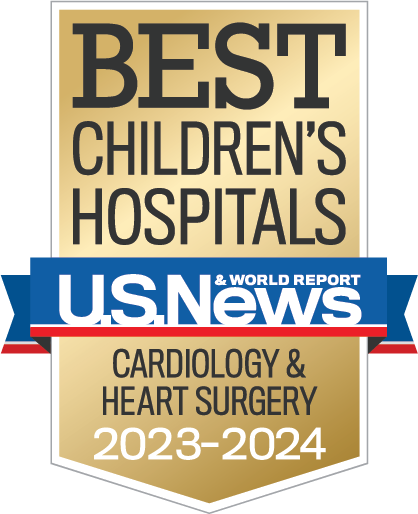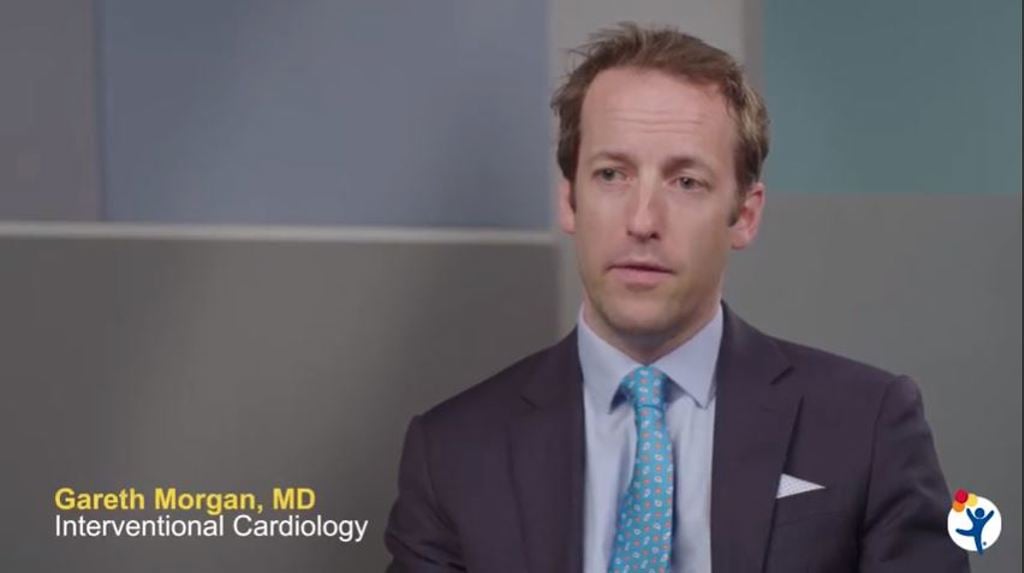- Doctors & Departments
-
Conditions & Advice
- Overview
- Conditions and Symptoms
- Symptom Checker
- Parent Resources
- The Connection Journey
- Calm A Crying Baby
- Sports Articles
- Dosage Tables
- Baby Guide
-
Your Visit
- Overview
- Prepare for Your Visit
- Your Overnight Stay
- Send a Cheer Card
- Family and Patient Resources
- Patient Cost Estimate
- Insurance and Financial Resources
- Online Bill Pay
- Medical Records
- Policies and Procedures
- We Ask Because We Care
Click to find the locations nearest youFind locations by region
See all locations -
Community
- Overview
- Addressing the Youth Mental Health Crisis
- Calendar of Events
- Child Health Advocacy
- Community Health
- Community Partners
- Corporate Relations
- Global Health
- Patient Advocacy
- Patient Stories
- Pediatric Affiliations
- Support Children’s Colorado
- Specialty Outreach Clinics
Your Support Matters
Upcoming Events
Mental Health Town Hall
Tuesday, April 23, 2024Join Children’s Hospital Colorado pediatric experts for a virtual...
-
Research & Innovation
- Overview
- Pediatric Clinical Trials
- Q: Pediatric Health Advances
- Discoveries and Milestones
- Training and Internships
- Academic Affiliation
- Investigator Resources
- Funding Opportunities
- Center For Innovation
- Support Our Research
- Research Areas

It starts with a Q:
For the latest cutting-edge research, innovative collaborations and remarkable discoveries in child health, read stories from across all our areas of study in Q: Advances and Answers in Pediatric Health.


Pediatric Cardiology Medical Education Videos
We are one of the largest programs in the country treating patients with heart problems from before birth through adulthood, with exceptional outcomes.

At Children’s Hospital Colorado, we regularly treat complex and rare heart conditions and conduct research to push the field of pediatric cardiology forward. In an effort to improve cardiology for kids not just in our care, but everywhere, we’re sharing resources based on our experience and research.
In the videos below, our pediatric heart experts discuss important topics in the field, including treatment for specific conditions, research findings and much more to help better prepare you to care for patients with congenital heart defects (CHDs) and other childhood heart conditions.
Widening care gap in ventricular assist device (VAD) therapy
In the 2023 multicenter study titled "The Widening Care Gap in Ventricular Assist Device (VAD) Therapy," researchers compared the outcomes of different VADs, including the HeartMate 3, HeartWare VAD (HVAD) and Berlin Heart, focusing on pediatric and young adult patients. It offers valuable insights into the technological advancements and challenges in VAD therapy, highlighting the impact on patient care and treatment outcomes.
In this video, Scott R. Auerbach, MD, explores the consequences of the HVAD's discontinuation and compares it with the HeartMate 3 using data from the Society of Thoracic Surgeons Intermacs and Pedimacs registries. Dr. Auerbach explains the differences in survival rates and adverse events across age groups, revealing a significant care gap for pediatric patients in need of intracorporeal support.
Intensified dual therapy immediately upon MIS-C diagnosis results in improved outcomes
Pei-Ni Jone, MD, pediatric cardiologist and former Director of our Kawasaki Disease Clinic and 3D Echocardiography, and Samuel Dominguez, MD, pediatric infectious disease specialist and Medical Director of our Clinical Microbiology Laboratory partnered with an interdisciplinary team to compare treatment between IVIG and IVIG plus infliximab in MIS-C patients.
In this video, Dr. Dominguez and Dr. Jone describe the clinical presentation and the laboratory evaluation of the MIS-C patients in the population of their research study. They also describe how these children present from a cardiac standpoint with evaluation from echocardiography.
As a result of the improved outcomes associated with IVIG plus infliximab, published in the October issue of Pediatrics, Children’s Colorado has updated our MIS-C care pathway to recommend administration of intensified initial therapy (Infliximab + IVIG) for all patients highly suspected or diagnosed with MIS-C.
Crisis resource management in medicine: a clarion call for change
Crisis resource management, or CRM, includes the cognitive, social and personal resource skills that complement technical skills and contribute to safe task performance. CRM is a risk-reducing strategy, where increased understanding of non-technical skills among members in an organization is regarded as a safety measure. The aviation industry has applied CRM for over 40 years to reduce errors and it is now being studied within healthcare to reduce medical errors and improve patient outcomes.
Robert Bishop, MD, Director of the Heart Institute In-situ Simulation Program, is interested in CRM because of because of an increasing incidence of harm to patients due to medical errors. Dr. Bishop co-authored a research paper on CRM in medicine with Robert Strickland, Senior Manager of Human Factors and Pilot Development at United Airlines. In this video, they discuss CRM, how it’s been applied and assessed within the aviation industry, and how it can be applied and standardized within the medical industry.
Hypoplastic left heart syndrome treatment and research
Hypoplastic left heart syndrome (HLHS) is a complex heart defect in which the structures of the left side of the heart don’t develop properly. The left ventricle does not operate as a systemic ventricle, obstructing blood flow to the rest of the body both during fetal development and after birth. Prenatal diagnosis is essential for HLHS so our pediatric specialists can begin treatment right after birth or during pregnancy, in some cases.
In the following video, James Jaggers, MD, Co-Director of the Heart Institute at Children’s Colorado and pediatric cardiac surgeon, discusses HLHS treatment options, HLHS survival rates at Children’s Colorado and multidisciplinary follow-up care. Dr. Jaggers also talks about the cutting-edge research we are involved in as part of the Mayo Clinic’s HLHS consortium.
Non-surgical patent ductus arteriosus (PDA) closure for neonates
Recent innovations in cardiac catheterization allow pediatric interventional cardiologists to perform non-surgical patent ductus arteriosus (PDA) closure on premature infants, offering families a lower risk and less invasive option than PDA closure surgery. Children’s Colorado is the only pediatric hospital in the region performing this advanced procedure with the Piccolo device from Abbott Labs, which was recently approved by the Federal Drug Administration (FDA).
In this video, Gareth Morgan, MD, Medical Director of our Cardiac Catheterization Program, discusses the advantages of transcatheter PDA closure, referral guidelines for neonatologists and what the experience is like for patients and families.
Referring patients for pediatric heart transplant
Because of improvements in surgical palliation for critical congenital heart defects, today pediatric heart transplantation is only recommended when cardiac surgery is likely to fail. In this video, Melanie Everitt, MD, Medical Director of the Heart Transplant Program at Children’s Colorado, explains the most common indications, contraindications, risks and benefits for pediatric heart transplantation.
Watch the video below to learn the importance of early referral and how to refer a cardiac patient to our Program for complete evaluation.
Echocardiography-fluoroscopy fusion imaging in cardiac catheterizations
Recent innovation in 3D echocardiography allows for improved patient care during cardiac catheterizations through fluoroscopy fusion imaging. Combining two imaging modalities not only provides improved guidance for many procedures to treat congenital heart disease, it also improves communication and teamwork between the imaging team and interventional cardiologists.
In this video, Pei-Ni Jone, MD, Director of 3D Echocardiography at Children’s Colorado, discusses the benefits of echocardiography-fluoroscopy fusion imaging in pediatric cardiac catheterizations, including improvements in catheter navigation, device placement and procedure evaluation. Using 3D echo guidance without the use of fluoroscopy in right-heart catheterization procedures also decreases radiation exposure in children.
Wellness and psychosocial care for pediatric cardiac patients
For the pediatric cardiac patient, psychosocial care is just as important as medical care. That’s why we designed a special program to identify and support each heart family’s unique needs during and after hospitalization.
In this video, Jeffrey Darst, MD, Director of the Heart Institute Wellness Program, highlights the medical professionals and subspecialists who help care for our patients holistically. Through our multidisciplinary approach, experts in psychology, social work, child life, palliative care, spiritual care and cardiology work together to tend to patients and their families – all within the Heart Institute. These non-medical services contribute to our center’s exceptional pediatric cardiology outcomes.
CHD in adults: The need for specialized care and an overview of our ACHD Program
Advances in diagnosing and treating congenital heart disease have dramatically reduced the mortality rate of CHD in childhood; however, complications later in life persist. In this video, Joseph Kay, MD, Director of the Adult Congenital Heart Disease Program, a joint program between Children’s Colorado and University of Colorado Hospital, discusses the unique and ongoing care that teen and adult patients with ACHD require.
Learn about the specialized care and procedures we offer for patients with ACHD, as well as the Adult Congenital Heart Association’s accreditation program and their criteria for maintaining high quality care.
Research: Prevalence of mental health conditions in patients with ACHD
Recent research published in The American Journal of Cardiology shows a high prevalence of mental health conditions among teens and adults with ACHD. In this video, lead author and ACHD specialist Amber Khanna, MD, summarizes the findings with Dr. Kay.
Mental health conditions such as depression and anxiety, explains Dr. Khanna, can interfere with the type of self-care that is critical for managing ACHD. Adult congenital heart physicians should consider the patient’s entire medical profile in order to ensure the best possible outcomes for patients who were born with a congenital heart defect.
Our Heart Institute is proud to partner with the Pediatric Congenital Heart Association (PCHA) to advocate for increased transparency in pediatric cardiac surgery outcomes nationwide through a new family-focused website. Scheduled to debut in 2020, the PCHA Hospital Navigator will provide program-specific pediatric and congenital cardiology data combined with improved explanation and context for families.
In this video, Dunbar Ivy, MD, Chief of Pediatric Cardiology at Children’s Colorado, and David Kasnic, Co-Founder and Executive Director of the PCHA, discuss the origins and purpose of the PCHA’s Hospital Navigator and why transparency in pediatric heart surgery outcomes matters.
Learn more about our commitment to quality and patient safety in pediatric cardiology.
For additional clinical resources, consultations or referrals, please see Children's Colorado's professional resources for healthcare professionals.



 720-777-0123
720-777-0123














